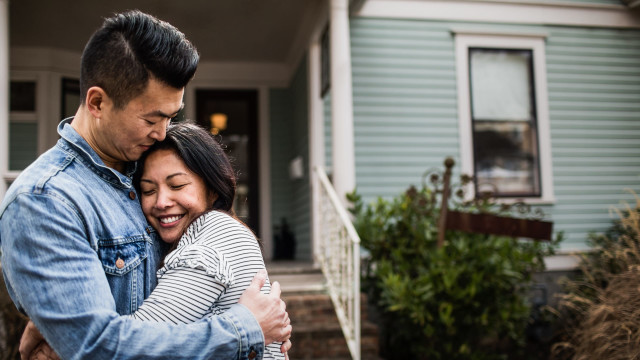New Ways of Loving in the New Normal

Valentine’s Day is here, and you are going to hear a lot about love. For a word so overused in our times, love as an emotion is surprisingly misunderstood and underestimated. There is no one way to love. We know this is true from the way we remember our mother’s kiss on our foreheads — I sure remember those from my dear Mamī; the bear hug from our father, warm with affection; a friend’s pat on our back when we needed encouragement; or the first rush of romantic love.
Just about everyone we know has been affected by the pandemic in some way or the other. Many have suffered mental anguish resulting from fear over health and safety, social isolation, loss of loved ones, job cuts, and financial insecurity. For many people, their entire lives have been upended, giving rise to emotions and/or harsh, volatile circumstances that have ruined their closest relationships, making life harder than it already is.
Like in every other aspect of life, we have adapted by learning new ways to love in the new normal. Over the last two years, love — both masked and unmasked — has been about showing affection in more than one way, in more genuine, authentic ways than we had ever thought possible.
So, what are these new forms of love?
Love is universal
I have honestly never witnessed as much love as I do today, and so close home. The lockdowns inspired us to rediscover love in and around our places of stay: many of us became closer than ever to our families, having more time to spend with them; we forged new friendships with neighbors, unable to meet friends who lived far away for extended periods. Many of us kindled bonds with our wider communities — from postmen, nurses, and service providers right down to neighbors lending a hand with grocery shopping or child and pet care when we were out sick or simply too busy adjusting to a new life.
As people are drawn together in solidarity, facing a common challenge, new manifestations of love, whether filial, communal, or romantic, naturally come to the fore and are nurtured for our greater good, and ultimately, for our collective wellbeing. To love is to feel like we belong: it is a collective, universal experience.
Love is grateful
Love can be simultaneously gentle and powerful, empowering and disarming: that’s why we’re so afraid of it at times. Think back to your past relationships: there was surely a time when you felt your partner or someone else you loved did not love you as much as you loved them. Perhaps they were being cold towards you, and you doubled down on your affections for them, unwittingly and unwillingly driving them further away. It’s happened to many of us.
But these tough times have made us realize that love is more than giving or receiving gifts, roses, chocolates, or champagne on special occasions. It is about that weekly video call when your parents can’t meet you, helping with chores every day, taking on new responsibilities as life is recalibrated. And sometimes, it’s simply about being responsible and staying safe or isolated to protect others.
Through it all, as we coped with tremendous loss and anxiety, we relearnt that love is about helping each other, and about counting our blessings and being truly grateful for the people you love and who love you, who show you they care each day in different ways.
Love is self-love
Love is also about making the right choices for a better tomorrow, not just for others and the planet but for yourself. We’re talking about self-love — which involves taking care of your own health and wellbeing. To embark on this path of self-love, you must take stock of your life and be truthful to yourself. Are you healthy? Are you fit? Are you emotionally, mentally, spiritually in a good place? Do you need help to reach your wellbeing goals? You need to be truthful in your answers and make efforts to find your path to living well. If need be, you should seek help from experts.
At Roundglass, where we’re working to democratize wellbeing for the world, we have self-help tools like the Roundglass Living app. It helps you get started on your journey to greater wellbeing and find serenity, nourishment, movement, and joy. You must first take care of your own body and mind to be able to take care of your family, friends, and the planet.
Go on and spread the love and, in return, let it truly shape you.

